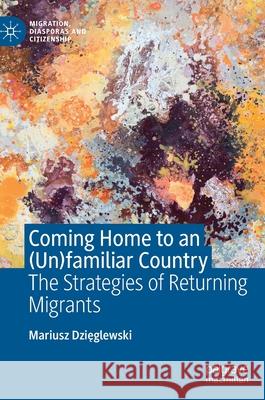Coming Home to an (Un)Familiar Country: The Strategies of Returning Migrants » książka
topmenu
Coming Home to an (Un)Familiar Country: The Strategies of Returning Migrants
ISBN-13: 9783030642952 / Angielski / Twarda / 2021 / 371 str.
Coming Home to an (Un)Familiar Country: The Strategies of Returning Migrants
ISBN-13: 9783030642952 / Angielski / Twarda / 2021 / 371 str.
cena 349,38 zł
(netto: 332,74 VAT: 5%)
Najniższa cena z 30 dni: 346,96 zł
(netto: 332,74 VAT: 5%)
Najniższa cena z 30 dni: 346,96 zł
Termin realizacji zamówienia:
ok. 20 dni roboczych.
ok. 20 dni roboczych.
Darmowa dostawa!
Kategorie:
Kategorie BISAC:
Wydawca:
Palgrave MacMillan
Seria wydawnicza:
Język:
Angielski
ISBN-13:
9783030642952
Rok wydania:
2021
Wydanie:
2020
Numer serii:
000446414
Ilość stron:
371
Waga:
0.62 kg
Wymiary:
21.01 x 14.81 x 2.24
Oprawa:
Twarda
Wolumenów:
01
Dodatkowe informacje:
Wydanie ilustrowane











